“She bent over at the river bank and began to wash the clothes, and as she washed her father’s fragrance which smelled of earth and trees, Asake cried.”
***
The gods do not warn a man before wreaking havoc on him.
One day, on a sunny afternoon, the winds began to howl and the sky darkened quickly. The first drops of rain fell and clouds of dust rose in protest. The rain fell furiously, beating down the dust, and the dust succumbed and became moist, defeated mud. Then Asake’s ears picked the sound of rain and the rumble of thunder, and she began to struggle in the womb.
The day Asake was born, it rained. At first, the villagers were thankful and the children danced in the rain shouting, “Ojo,” at the top of their voices. The rain appeared to become angrier as Sango began to hurl lightning forks and growl in thunder. The frightened children ran inside and hid between their mothers’ thighs. The rain fell more furiously and the happy farmers began to worry for their crops. The ancient mahogany tree that stood in the centre of the village square paid obeisance to the rain, imploring it to stop. But the rain was angry and snapped its bent trunk and the tree fell. River Omi, pliant as water always is, transformed from a gentle flowing stream into an angry mass that quarreled with its bank and kicked it away in anger, entering inland and devouring everything in its path. When the rain was over, two ugly things had occurred: the village had been damaged by the rain and Asake had come into the world.
It seemed Asake knew her place in the world even from birth, because she did not cry loudly like other babies did; she just waved her tiny hands in the air and let out a few cries, muffled by the plundering rain, to let the midwife know she was okay. The midwife took a look at her and shook her head, then she handed her over to her mother, and the first time Asake’s mother, Atinuke, met the eyes of her daughter, it was not love that Asake was greeted with—it was horror. Horror that would grow into disgust as Asake grew and eventually settle as a detachment. That year, while other mothers tied their babies at their backs and balanced their gourds on their heads to go to the stream, Atinuke would leave her at home. When young girls carried the babies and played with them at village events, no one would carry Asake. From birth she was dubbed Asake the Ugly.
The cunning agbalumo stings the mouth of a weak man to make its escape.
The first day Asake refused to suckle, Atinuke took her breast back happily. The moment her steps were no longer wobbly, Atinuke stopped carrying her. Asake grew up doing things for herself. She did not blame her mother, for if what people said was true, then it must be a great shame for a woman as beautiful as her mother to give birth to a child as ugly as her. Whenever she tried to join the other children in games, they would change the songs they were singing to songs that taunted her.
Asake, the ugly one,
Wants to play with us.
The one whom the gods were
Angry was born.
Tell us, Asake, is it not true
That the day you were born
Sango and the other gods
Destroyed the village with an ugly storm?
Tell us, Asake, are you a slave of the gods
Escaped from your place in the dust?
Tell us, Asake, why is your nose so flat
And your head so small?
And why do your ears flap in the wind
Like the wings of a seagull?
Asake knew this song by heart and though its words hurt her, she loved the tune so she hummed it when she was sad. Asake did not hate the children; she only felt sad that they could not look beyond her face and get to know her.
He that is down, that fears no fall, should think again.
The day Asake’s father, Banji, died, she knew true sadness, and she cried true tears. He had fallen from a palm tree while tapping wine, and had died instantly. Asake came home from the river to find her mother on the floor, legs spread apart, tears and mucus running from her eyes and nostrils. Asake looked at her pretty mother, her faced soiled by the ugliness of grief, and for the first time, mother and daughter connected. Asake did not cry that day. She did not cry the next day either when she saw his sandals in the doorway, looking lonely for they had no feet to converse with. Wiping the dust from the sandals every morning had been Asake’s job. Two days after the death of Asake’s father, the sky rumbled with rain, and when the heavy drops began to fall, Asake gathered her father’s dirty clothes and went to the river. She bent over at the river bank and began to wash the clothes, and as she washed her father’s fragrance which smelled of earth and trees, Asake cried. Her cries first came in small sobs and slow tears, then it engulfed her being and she bent her head back and wept. She wept and cursed the gods for taking the only person who remotely cared about her. He was the one who told her bed time tales, about the cunning ijapa and his friends. He took her to the farm, to the market, and on short walks round the village. He was the only one who thought she was beautiful. He was the only one who truly loved her. The rain fell furiously and merged with Asake’s tears. It fell and hid the ugliness caused by grief on Asake’s face from the world; a world that could not forgive her for being ugly. After that day, Asake went out only when it rained, she fell in love with the stinging coolness of the rain drops and the slicing chill the wind brought. The rain hid her from the world and yet allowed her to experience it, and Asake concluded that the rain that fell the night she was born was not the rain of the gods’ anger. It was a rain that guarded her into life and shielded her from a world that could neither forgive nor accept her for being who she was.
Gbonka was a mad man’s mad man. He was insane in the way people were normal. In the village, no one crossed his path, even the little children did not look for his trouble. Gbonka was on his own one rainy day, walking under the rain in search of the mad person that was pouring water from the sky and wetting his beautiful clothes. He had worn those clothes in preparation for his friend’s daughter’s wedding and the idiot that was pouring water had wet it. In fact, the water had torn his shirt and made huge holes in it, and the mud had turned the white dansiki brown. Gbonka walked swiftly in the rain, wielding a big stick in his right hand. Lightning flashed and Gbonka saw the hand of the mad person pouring water, so he followed the direction of the lightning stick held up high. Just before he reached the source of the lightning, another one flashed from a different direction, and he ran swiftly, holding onto his fila as he ran. Then the earth shook with thunder and Gbonka fell down to dodge the bullet of the callous man pouring water from the sky. He scrambled to his feet and looked for his stick as he moved stealthily on all fours; he caught a glimpse of someone at the stream; he moved closer and from his vantage point, he saw that it was Asake the Ugly. Immediately he stood up and ran towards the stream, wielding his big stick. As he ran, he connected the dots and it all made perfect sense. Asake’s father was dead and dead people lived in the sky, and Gbonka was sure the man was responsible for the bucket of water that had been dropping from the sky, after all his daughter was in the river having her bath. If the man wanted to bathe his daughter, he could do so without wetting him. Anyway, he would teach the crazy man a lesson, after all the man had never liked him when he was alive. With all these in mind, Gbonka rushed into the river.
Asake was startled and covered her breasts when she saw Gbonka in front of her. He was wearing a dirty, torn and muddy once-brown-but-now-white dansiki. She backed away from him, shivering with fear and looking around for her clothes. Gbonka stared at her and felt a stirring in his groin. Her breasts were full and pointed up in a perky way that taunted him; he looked at the curve of her body, and how the rain dripped down from her navel through the pubic hair into the v-shaped junction between her legs, and the stirring became a fire that was not stifled by the slicing wind. Gbonka advanced towards Asake the Ugly, realizing for the first time that she was beautiful and he wrapped his hand around her. Asake opened her mouth to scream but Gbonka was faster and shut her mouth with his palm. He went to work quickly, holding her left breast firmly in his hand and squeezing. Asake froze, as twin waves of pleasure and fear wracked her body. When his mouth enveloped her nipple and he sucked, she fought the moan that escaped from her body. She tried to trash with her legs but they did not respond to her commands. She felt Gbonka remove his hand from her mouth, and watched him untie the rope that held his trousers together. As he fumbled with the ropes, his hands fidgety, she regained her composure and turned to run.
“Where are you going, Asake the Beautiful?”
Asake froze. It was the first time ever that someone not her father had called her beautiful. Again, twin waves of pleasure and fear wracked through her body. It was in that position that Gbonka went under the water and began to move his tongue around her nether regions, and as much as Asake wanted to run, she felt too powerless to do anything, betrayed by her own body. When she opened her mouth, moans of pleasure, not screams came out, and when Gbonka entered her, breaking the membrane, she screamed, and for the first time, it was one wave that wracked her body: pain. It was the pain that brought Asake back, and in between the thrusts that seemed to pound her head and tingle her spine, Asake found the strength to kick. Gbonka looked at her confused, his erect member dripping with a slow moving fluid. He rushed towards her and, this time, Asake gave him a kick between his legs. Gbonka felt the pain but waved it off and searched around for his stick. Asake ran towards the bank, screaming, her cries muffled by the rain. Gbonka ran after her waving a stick. When she reached the bank, she turned back to check the distance between them and all she saw was a stick advancing towards her head—and then all was darkness. Gbonka lay his unconscious victim on the floor and spread her legs apart, and then he finished what he started. His climax coincided with thunder and Gbonka led out a guttural scream. Somewhere in the darkness, Asake felt a wave of pure pleasure envelop her, and she knew that was what beauty looked like.
After the rain stopped, Asake’s body was found and she was carried to her mother. The poor woman, still grieving for her husband, was beside herself with grief. Her grief however was selfish. Her tears lamented her unlucky lot in life. From the ugly child she had brought to the world to her dead husband, and now her ugly child had been raped by a mad man, for Gbonka’s stick had been found at the scene along with his cap. Her mother wept and wept, while Asake just stared at the world with vacant eyes.
True beauty is chaos.
Time went on and harmattan came with its cold, yet Asake’s eyes remained vacant. They glistened with tears unshed and her lips cracked with wails unheard. Asake did not go out, she barely ate, and her skin dried and cracked as harmattan took what little fluid she had. Only her eyes glistened. Atinuke looked at her daughter, unsure of what to do. The routine of cleaning her daughter, feeding her every day and helping her to the toilet was disgusting to her at first. But as she cleaned, she began to fall in love with the daughter she did not know, and she wished desperately that her daughter would return and her eyes would glisten no more with tears.
One day, on a sunny afternoon, the winds began to howl and the sky darkened quickly. The first drops of rain fell and clouds of dust rose in protest. The rain fell furiously, beating down the dust and the dust succumbed and became moist, defeated mud. Asake’s ears picked the sound of rain and the rumble of thunder, and for the first time, she stood up on her own. Her mother who had been keeping watch at her bedside followed her closely, watching her daughter’s trembling limbs, ready to catch her if her limbs failed her. Asake walked slowly until she got outside and stopped when she saw the rain drops. Then she turned back to face her mother. Mother and daughter smiled at each other for the first time ever. Asake began to remove her clothes and stepped into the rain, stark naked. Atinuke did the same, and mother held daughter and both wept.
As Asake’s tears fell, guilt, pain and shame left, and the ugliness she thought she had were washed away by the rain. Atinuke looked at her weeping daughter in her arms; she still had a small head and a flat nose and her ears were too big, but she had never been more beautiful. Now she understood why rain fell the day she was born. There was something about rain that stripped a man down to his very essence.
She hugged her weeping daughter and said, “Ma sunkun mo, Asake ti ojo.”
The rain continued to fall, and Sango hurled his lightning at man and laughed in thunder, and the gods celebrated this small victory of beauty. Houses fell, and River Omi flooded, but to the gods, it was beautiful. Whoever said order was beauty?
**************
Post image by Giles Turnbull via Flickr
About the Author:
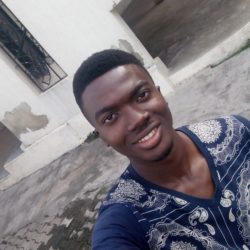 Okonkwor Oyor believes that writing is the best gift that man has. He hopes to one day be a writer that gives hope to people worldwide. Although the world sucks as much as it seems to, we must fight till the very end. He loves reading and believes that he has a fairly good voice.
Okonkwor Oyor believes that writing is the best gift that man has. He hopes to one day be a writer that gives hope to people worldwide. Although the world sucks as much as it seems to, we must fight till the very end. He loves reading and believes that he has a fairly good voice.


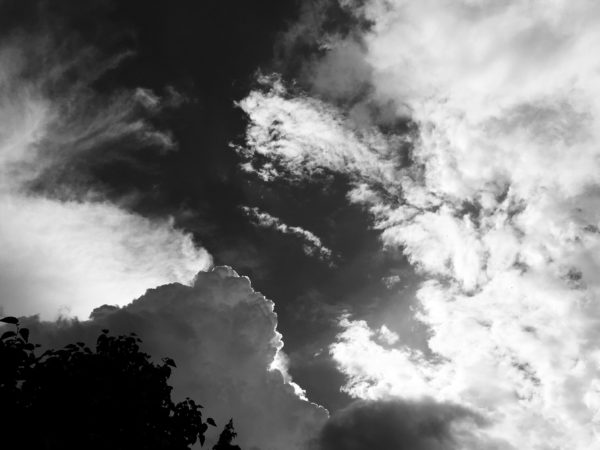
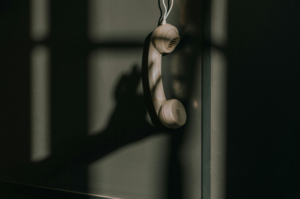

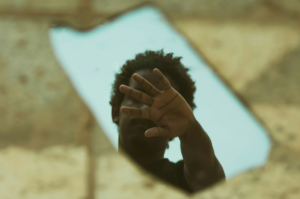

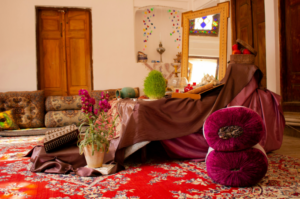
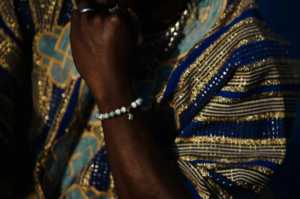

Okonkwor Oyor September 28, 2017 11:03
Thank you everyone. I am grateful